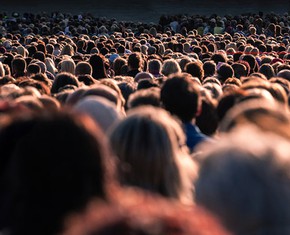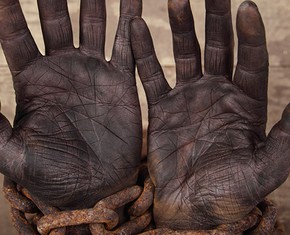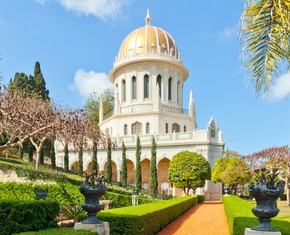The views expressed in our content reflect individual perspectives and do not represent the authoritative views of the Baha'i Faith.
Which one of the six major theories of history—cyclical; linear; Great Man; peoples’; geographic; or Marxist—do you like best?
In this series of essays, we’ve explored all six of those theories, and introduced a seventh, the Baha’i view that history precedes primarily from the influence of a progressive series of prophets.
Actually, though, it occurred to me, while writing this series, that the Baha’i view of history effectively addresses and encompasses all six of the major historical theories, incorporating the major concepts behind each theory in a new and unique way.
Let’s take them one by one. The cyclical theory, first proposed by the ancient Greek philosophers, says that human nature doesn’t change, making history a repetitive cycle that swings from one extreme to the other in a regular pattern. Baha’is definitely recognize the causes and effects of that cycle, and liken it to the eternal cycle of the seasons:
The spiritual world is like unto the phenomenal world. They are the exact counterpart of each other. Whatever objects appear in this world of existence are the outer pictures of the world of heaven. When we look upon the phenomenal world, we perceive that it is divided into four seasons; one is the season of spring, another the season of summer, another autumn and then these three seasons are followed by winter. When the season of spring appears in the arena of existence, the whole world is rejuvenated and finds new life. The soul-refreshing breeze is wafted from every direction; the soul-quickening bounty is everywhere; the cloud of mercy showers down its rain, and the sun shines upon everything. Day by day we perceive that the signs of vegetation are all about us. Wonderful flowers, hyacinths and roses perfume the nostrils. The trees are full of leaves and blossoms, and the blossoms are followed by fruit. The spring and summer are followed by autumn and winter. The flowers wither and are no more; the leaves turn gray and life has gone. Then comes another springtime; the former springtime is renewed; again a new life stirs within everything. – Abdu’l-Baha, The Promulgation of Universal Peace, p. 9.
The cyclical theory of history presumes that progress never occurs, but the linear theory has the idea of progress at its core, surmising that humanity does make steady improvement through time. The Baha’i teachings also have a progressive view of history, driven primarily by the repeating cycles of religious revelation:
Religion is the outer expression of the divine reality. Therefore, it must be living, vitalized, moving and progressive. If it be without motion and nonprogressive, it is without the divine life; it is dead. The divine institutes are continuously active and evolutionary; therefore, the revelation of them must be progressive and continuous. All things are subject to reformation. – Ibid., p. 140.
While Baha’is recognize the Great Man theory of history’s emphasis on the influence of powerful leaders, the Baha’i teachings say that the most powerful and influential leaders are the prophets of God, the divine messengers and teachers who bring us new revelations:
… men have always been taught and led by the Prophets of God. The Prophets of God are the Mediators of God. All the Prophets and Messengers have come from One Holy Spirit and bear the Message of God, fitted to the age in which they appear. – Abdu’l-Baha, Abdu’l-Baha in London, p. 24.
The centers of progress for each age are the manifestations of God as seen in his prophets. In whatever country or at whatever time they appear, they are the focus of the creational day … – Abdu’l-Baha, Divine Philosophy, p. 58.
The people’s theory of history, which relies on the common man and woman to move history forward, also has tremendous resonance in the Baha’i teachings, which give individuals the freedom and the authority to change the world:
As there is no one who has not his designated place in the world, for there is nothing useless on this earth, we must treat each individual with respect and affection, for each is a sign of the divine favor and power—that power which has been able to draw such a being out of matter, make of him a creature with sensorial faculties and endow him with intellectual and spiritual potentiality. This is one of the visible proofs of the divine power. Let us respect these living proofs. – Ibid.
The geographical and Marxist theories of history, which focus respectively on the impact of geography and natural resources on human civilization, and on the struggle of the economically-deprived working class, relate directly to the Baha’i teachings, which address the concerns of both theories by calling for justice—including an equitable distribution of the world’s natural and economic resources, and an end to the oppression of the poor and downtrodden by eliminating disparities of wealth and poverty.
The Baha’i theory of history I’ve presented in this series of essays recognizes and includes all six of the predominant historical theories, and adds its own: a series of progressive religious revelations driven by one Creator, coupled with a promising, future-oriented, forward-looking organic metaphor that compares human history with the growth and maturation of the individual:
The world of humanity shall become the manifestation of the lights of Divinity, and the bestowals of God shall surround all. From the standpoints of both material and spiritual civilization extraordinary progress and development will be witnessed. In this present cycle there will be an evolution in civilization unparalleled in the history of the world. The world of humanity has, heretofore, been in the stage of infancy; now it is approaching maturity. Just as the individual human organism, having attained the period of maturity, reaches its fullest degree of physical strength and ripened intellectual faculties so that in one year of this ripened period there is witnessed an unprecedented measure of development, likewise the world of humanity in this cycle of its completeness and consummation will realize an immeasurable upward progress, and that power of accomplishment whereof each individual human reality is the depository of God—that outworking Universal Spirit—like the intellectual faculty, will reveal itself in infinite degrees of perfection. – Abdu’l-Baha, The Promulgation of Universal Peace, p. 37-38.
















Comments
Sign in or create an account
Continue with Googleor